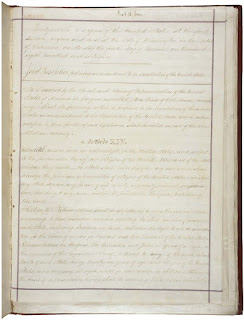“Whereupon the Citty and Fort Amsterdam and Province of the New Netherlands were surrendered under His Most Exct. Mat’s. Obedience, made and concluded the 27th. day of September 1664.”
– “Articles of Capitulation on the Reduction of New Netherland,” better known as the “Articles of Surrender of New Netherland” (signed on the 29th of September 1664) – the document that transformed the Dutch-speaking “New Amsterdam” into the English-speaking “New York City”
A television history of New York City, the largest city in the United States
It is the great paradox of New York City. On the one hand, it is a historic city, where many great historical events have taken place. But, on the other hand, very little of it looks anything like it once did. Most cities have made inroads upon the local environment, turning natural wildernesses into sprawling urban landscapes. But even the more urban landmarks of New York City are often destroyed, to build something else in their place. And, on a different note, the city’s history is, in many ways, a microcosm of the larger history of the United States. In the history of this one city, you see conflict between different groups – between long-standing families and relatively recent immigrants. You see conflict between management and labor, between city and state concerns, and between local and national concerns. And you see national economic trends realized on the local level – from the Gilded Age and the Progressive Era, to the “Roaring Twenties” and the Great Depression. Most of the greatest conflicts of American history can, to some degree, be seen here in the history of this one city. Thus, PBS gave filmmaker Ric Burns the green light … to produce a television history of the city. In the DVD set that I’ve been watching, I have seen 17 hours of great storytelling. They cover the city’s initial seventeenth-century colonization by the Dutch to the 9/11 terrorist attacks of 2001 – and beyond! It is an engrossing yarn, and might merit a brief overview in this blog post.
New Amsterdam in 1664 – the predecessor of New York City


























